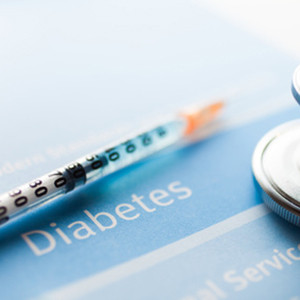Contributor: Vermilion Behavioral Health Systems clinical team member Erica Smith, MA, NCC
Diabetes and Alcohol Abuse

Many people who have diabetes can drink alcohol moderately without suffering from dramatically negative consequences. However, it is important that the term “moderately” be adhered to and not engage in alcohol abuse.
Diabetes is an illness that is estimated to affect 16 million people in the United States. It is a disease that results from a deficiency of, or a complete absence of, the insulin hormone, or as a result from the body’s inability to respond appropriately to insulin.
The presence of diabetes can result in consistently elevated blood sugar levels, the accumulation of acidic substances in the blood, and in excessive excretion of sugar in the urine.
Diabetes can bring about many adverse effects on the health of those afflicted by it. Things such as circulatory and nervous system disturbances, skin problems, eye disease, and kidney dysfunction can all be consequences of diabetes when proper precautions and treatments are not enacted and properly adhered to. Fortunately, diabetes can be successfully monitored through the implementation of appropriate treatments.
However, when a diabetic consumes large amounts of alcohol, there can arise many detriments to his or her health and overall wellbeing.
Precaution with Stages of Diabetes and Alcohol

Depending on the stage of diabetes that one is diagnosed with, he or she will be taking various precautions in order to maintain steady health.
If someone is taking insulin, or is regularly taking certain types of oral diabetes medications that stimulate the pancreas in order to produce more insulin, the consumption of alcohol can cause his or her blood sugar level to drop to dangerously low levels.
The reason for this is due to the fact that the liver has to fight to remove the alcohol from the person’s blood stream, hindering its ability to appropriately regulate blood sugar levels.
When an individual has diabetes and chooses to consume alcohol in great or excessive amounts, there are a number of long-term consequences that can occur.
Some of the effects that have been associated with heavy alcohol consumption in individuals who have diabetes include, but are not limited to, the following:
-
- Cardiovascular disease – one of the leading causes of death among Americans
-
- Ketoacidosis – a condition that arises when there exists excessive levels of certain acids, known as ketone bodies, which can result in nausea, vomiting, significantly impaired mental functioning, falling into a coma, or, in severe cases, even death
-
- Hypertriglyceridemia – a condition that causes inflammation of the pancreas, which can lead to cardiovascular disease
-
- Retinopathy – an eye disease that results from tissue complications that can ultimately cause blindness; one’s risk for developing this disease is dramatically heightened when one consumes alcohol heavily
-
- Peripheral neuropathy – a condition that results from nerve damage that has extended from the spinal cord to the nerves that are responsible for controlling muscular function or for transmitting sensations such as pain, temperature, and touch, back to the spinal cord and the brain; heavy alcohol consumption can cause the onset of, or exacerbate symptoms of, this condition, resulting in permanent nerve damage
-
- Impotence (also known as erectile dysfunction) – a condition in which there exists damage to the autonomic nervous system, which causes men to suffer from an inability to obtain and/or maintain an erection; excessive alcohol consumption can reduce the blood levels of testosterone, exacerbating the symptoms of this condition
Drinking in Moderation

Alcohol use is a common occurrence in our society today, and individuals who have diabetes are not immune this widespread usage.
As was previously stated, when consumed in moderation and under the guidelines provided by one’s attending physician, diabetics can drink alcohol and not suffer adverse health consequences. Yet once alcohol consumption exceeds moderation, the risks that one is imposing upon him or herself are great.
When It’s Time to Get Help for Alcohol Abuse
Sadly, due to the widespread usage and societal acceptance of alcohol, alcohol abuse and addiction is not uncommon. Any individual who develops a dependency on alcohol will typically require professional intervention in order to overcome his or her addiction.
When an individual has developed a dependency on alcohol and also has diabetes, immediate attention must be given to the presence of the addiction in order to prevent severe, and potentially fatal, consequences. There are many treatment options available for individuals who are struggling with alcohol abuse and addiction.
Inpatient treatment programs can be especially beneficial for individuals who have diabetes and are struggling with an alcohol addiction because, in an inpatient setting, these individuals can be monitored around-the-clock should complications, physical or psychological, arise.
Furthermore, many inpatient treatment settings offer medically monitored detoxification, which allows alcohol to be removed from the body while people are under the close supervision of medical professionals.
About the Author:
This blog was written by Vermilion Behavioral Health Systems clinical team member Erica Smith, MA, NCC. Erica has several years of experience working in the treatment field as a clinical therapist and has her Master’s degree in Clinical Counseling from the American School of Professional Psychology.
Site Description:
Licensed to operate 78 beds, Vermilion Behavioral Health Systems is a free-standing provider of comprehensive behavioral healthcare services. Located in the heart of Acadiana, this center is the largest and only provider of inpatient care for adolescents in the region.
Vermilion’s innovative programs offer treatment for a wide range of behavioral health conditions and features programming options at various levels of care for young people, adults, and senior adults. By implementing treatment methods and evidence-based therapeutic techniques, Vermillion’s exemplary treatment has solidified its reputation as a center that offers high quality mental healthcare.
The opinions and views of our guest contributors are shared to provide a broad perspective of addictions. These are not necessarily the views of Addiction Hope, but an effort to offer a discussion of various issues by different concerned individuals.
We at Addiction Hope understand that addictions result from multiple physical, emotional, environmental, and genetic factors. If you or a loved one are suffering from an addiction, please know that there is hope for you, and seek immediate professional help.
Published on January 31, 2015
Reviewed and Updated by Jacquelyn Ekern, MS, LPC on January 12, 2021
Published on AddictionHope.com
